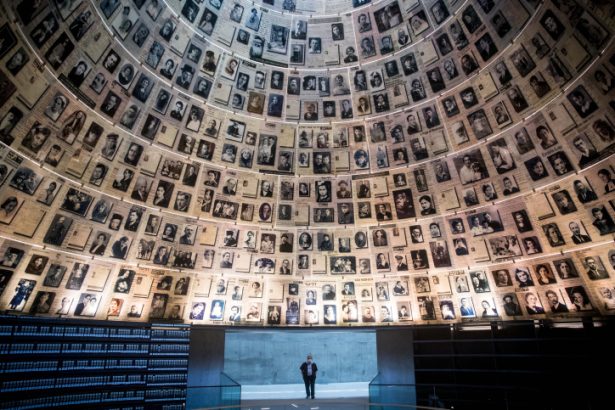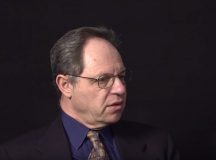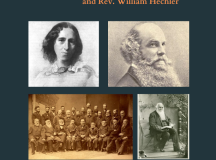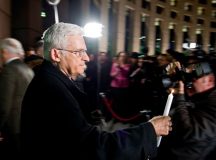Revd Ray Gaston has been involved in grassroots interfaith dialogue and action as an Anglican priest throughout his ministry. He is the author of Faith, Hope & Love – Interfaith Engagement as Practical Theology (SCM 2017).
I marched against the war in Afghanistan and Iraq when a priest in Leeds and we took a coach full of people from the church to the million-strong march against the invasion of Iraq in February 2003. On that coach we listened, and some jeered, as Tony Blair broadcast to the nation his rationale for war. I wasn’t convinced then and am still not convinced. I protested the war and wrote a book about those years that was published by the Iona Community press. Alongside the antiwar activity I reflected in that book on the dialogue I engaged in with the local Muslim community in my parish which included coordinating a community response to the discovery of the bomb factory for 7/7 in a block of flats 100 yards from the church. Much of my interfaith work at this time was countering the Islamophobia generated by the false picture of Islam presented by terrorists and the wars.
I moved to Birmingham in 2007 initially to study Muslim–Christian relations at the university and then a year later took up a post as Interfaith Tutor at Queen’s Foundation and Interfaith Enabler for the Birmingham District of the Methodist Church. Six months into the new job Operation Cast Lead happened – a three week conflict in Gaza between the Israeli Defence Forces (IDF) and Hamas. Demonstrations took place in Birmingham and as an antiwar activist I became involved, now in a public role with the Methodist Church. I was asked to speak and I did. I cringe at my arrogance now. I knew little about the conflict but I am a good orator and with a pastiche of liberation theology and anti-imperialist politics I enthused the large and mainly Muslim demonstration concluding my speech with the then popular slogan ‘We are thousands, we are millions, we are all Palestinians!’
This led to a not-too-easy dialogue with some members of the local Jewish community facilitated by the Church of England’s Diocesan Inter-faith Officer but it was the following year in 2010 when the Methodist Church opted to join the BDS movement that my real journey into Christian–Jewish relations began. The motion had included a call to dialogue with Jewish and Muslim communities after the vote was passed and so as interfaith Enabler I set about to do this locally. My Muslim contacts were just pleased with the vote and didn’t understandably see dialogue with the Methodists Church on BDS as a priority. Some in the local Jewish community were keen to enter into dialogue on the decision and I facilitated meetings for this to take place. They weren’t easy discussions, and the participants who had been the keenest supporters of the conference motion opted out of the dialogue after a short time, but I found them challenging and helpful. They concluded in December 2011 after 16 months with a visit of 100 Methodists from the District, to the Chanukah celebrations at the Birmingham Central Synagogue. Later that year I was invited to participate in a St Ethelburga’s Centre for Reconciliation and Peace interfaith pilgrimage to Israel and The West Bank where four Christians, four Muslims and four Jews would experience the Holy Land from each others perspective and engage in dialogue about the conflict through engagement with the issues on the ground.
This pilgrimage was transformative for me. On the one hand I was taught by a Pakistani Journalist and Sufi Muslim how to love pilgrimage and to see the beauty in the Church of the Holy Sepulchre that I had previously, as a Christian, been ashamed of. Secondly, I experienced Shabbat in a largely Jewish space and developed throughout the trip a fascination for Israel. The following year I participated in The Council for Christians and Jews annual seminar for Christian clergy and church leaders at the International School of Holocaust Studies, Yad Vashem in Israel and in my heart was converted to Zionism – as the belief in the right of the Jewish people to self determination – although my head told me to keep this very much to myself in both the Christian social justice and left wing circles I was moving in. During my later participation in the Corbyn phenomenon from 2015-2017, then in parish ministry in the inner city, to my shame I denied to myself the extent of the movements antisemitism in the hope that a Corbyn government might bring relief to the migrants and refugees and those struggling after years of austerity that I now worked amongst.
But after my two visits to Israel I could never again march to the easy slogans of Palestinian Solidarity in the UK. When still in Birmingham I spent 2010-2015 working to develop my courses at Queen’s that included Jewish–Christian and Muslim–Christian relations, I worked in the city with the local Muslim community and others to challenge the Islamophobia of the English Defence League who regularly visited Birmingham to stir up trouble. I participated in campaigns against police surveillance of the largely Muslim community within which I and my family lived, and I wrote a book on Interfaith Engagement drawing upon my grassroots engagement with Islam and the struggle against Islamophobia and my eight years teaching the subject in theological education. With one of the Rabbis I met on the St Ethelburga’s pilgrimage we drew together a small but enriching dialogue project on Christian–Jewish relations and the Israeli-Palestinian conflict that ended with a document that was circulated and debated within parts of the progressive movement of Judaism and the Council for Christians and Jews.
Following the pogrom in Southern Israel on 7 October it was to that Rabbi that I wrote to offer my support and in our conversation on WhatsApp I shared some of my own journey, writing ‘I’m surprised how untorn I feel, in my head I want to be balanced but my heart goes out to Israel and I fear for it and feel the real threat to its survival and it’s that threat that is uppermost in my mind and that I fear. I think it’s really the first time I’ve felt the real vulnerability it feels for itself in a real way. It’s been a knowledge in my head but not an understanding in my heart.’
The attack came 50 years to the day from the time a coalition of Arab nations launched a surprise attack on Israel on Yom Kippur, the holiest day in the Jewish calendar. The choice of date was the same, the method of attack very different. Israeli soldiers died in the Yom Kippur war, Israel suffered its largest loss of combatants in any of the wars it had fought with Arab neighbours. 7 October 2023, which fell this time on the festival of Simchat Torah, was not a military assault but a pogrom where Jewish civilians were targeted, tortured, raped and brutally massacred. 1,400 were killed in less than a day whilst hundreds were kidnapped and taken back to Gaza.
I felt angry and upset at some of the responses on social media from friends who were cautious in their expression of sorrow for Israel’s loss and pain. I felt horror at some of the responses from people I had worked with beyond the Christian community who saw the pogrom as a legitimate ‘act of resistance’ of an oppressed people.
In my search to express what I was thinking and feeling I returned to look at Christian responses to the Yom Kippur war in 1973 a very different time that included some very different responses. One of the most outspoken groups at the time in the USA were Christians Concerned for Israel.
They were a grassroots group whose leadership was not made up of Evangelical Christian Zionists but mainline Christians involved in both post-Holocaust theology and Jewish-Christian dialogue.
Often they termed themselves Christian Zionists but for them that meant they were Christians supporting Jewish Zionism not Christians who saw Zionism as a pawn in the Christian theological project.
Methodists Franklin Littell and Alice and Roy Eckhart were leading figures. Littell wrote a stunning polemic on Christian antisemitism called The Crucifixion of the Jews whilst the Eckhardts wrote about the theological significance of modern Israel and post Holocaust theology.
Both Littell and the Eckhardts produced strong statements in support of Israel in the Yom Kippur War. For them it was not conflict between Palestinians and Israelis but a battle between a small fragile Jewish state defending Jews against annihilation from a united Arab coalition.
We now tend to see conflict between an oppressed Palestinian population and a powerful Israeli state backed by US imperial power, the Arab nations seemingly less active in undermining Israel, some even seeking to build economic ties of mutual benefit, in the form of the Abraham Accords.
However, that situation is changing. There is a weakening of US power and movement to a more multipolar world. Iran is becoming a significant power in the region, supporting Syria, Hamas, Islamic Jihad and Hezbollah, who along with their paymasters, have annihilationist agendas in relation to Israel.
In such a changing context it is worth revisiting Littell and the Eckhardts statements to see if they have anything to say to our current situation with their greater awareness of Israel’s vulnerability.
Littell emphasised how the state of Israel ensured the survival of the Jewish people. His theological agenda prioritised the story of Israel, and saw Zionism as a modern restoration project for Jewish empowerment and Christians were to understand it in those terms and support it as a project of Jewish empowerment per se and allow the challenge of that to impact upon our own Christian self-understanding.
The Eckhardts agreed. They saw the attack as a continuation of the Holocaust, another attempt to wipe out the Jewish people. They believed the church call for ‘peace’ was colluding with this agenda as Christian peace appeasers had in the 1930s.
The challenge these activists and theologians pose from a different time is their awareness of how fragile Israel is and how important it is for the survival of the Jewish people and for a theological understanding of the world.
We don’t notice the vulnerability so clearly now as Israel’s alliance with the USA is seen as making it strong and the conflict is perceived as being between the Israeli state and the Palestinians, not the Arab world as in 1973. But that alliance with imperial power is a strategy of survival because, as 7 October showed us, annihilationist tendencies are very much still in existence.
The secular Palestinian national movement of the 1970s and 1980s is now represented by the broken and corrupt Palestinian Authority whilst the main protagonists fighting against Israel are Iranian-backed Islamist movements whose agenda is less Palestinian nationalism than pan-Islamism.
US interests align with Israel at the moment but Israel is not an imperialist project constructed by the USA or the UK despite myths to the contrary. Any detailed analysis of the history of Zionism shows this. Israel doesn’t fit easily into the anti-imperialist view of the world. More: Such perspectives deny the reality outlined by Littell in his polemic that Jews have always faced an existential threat to their continued existence from antisemitism.
Christians were the greatest contributors to that threat right up to the modern period, and our anti Judaism fuelled modern antisemitism.
But Littell and the Ekhardts also saw this antisemitic tendency in Arab intransigence to the Jewish state and others since have seen links between contemporary Islamism as a political ideology and Nazi antisemitism. Antisemitic rants by the Palestinian Authority leader Mahmoud Abbas show it’s not restricted to them.
Both the cautious and hostile reactions to the 7/10 pogrom represent a simplistic anti-imperialist lens on the Israeli state fuelled by antisemitism. Like my own ignorance at the time of Cast Lead, that lens alleviates the guilt of historical, whilst ignoring the reality and participation in contemporary, antisemitism.
Littell and the Eckhardts speak to us today by pointing in a different direction – a more theological and penitential one, that recognises the need to prioritise resisting the vile ideologies and theologies of antisemitism and anti-Judaism and calls us to develop a faith-based politics that aims to undermine antisemitism and reconcile the world to the reality of the continued existence of the Jewish people as a diverse and unique people challenging easy universalisms – theological or secular, and for whose survival a safe and secure Israel is of paramount importance. It requires us to develop what one group has called a ‘Theology of Belonging’ in relation to the Holy Land that incorporates all three Abrahamic faiths but through an acknowledgement of the importance of the Jewish claim on the land we all call holy.
I watched two days ago Keir Starmer’s speech at Chatham House – what some people are calling his ‘Iraq moment’ referring to Tony Blair’s stand and speech that I began this piece with. As I said, I still believe Blair was wrong in his stand at the time, a stand that came to negatively define his premiership and leadership of the Labour Party. I felt very differently about Starmer’s speech and I certainly do hope that his wider vision for a renewed diplomatic impetus for a viable and realistic two-state solution comes to positively define his upcoming premiership.




































